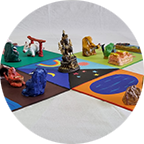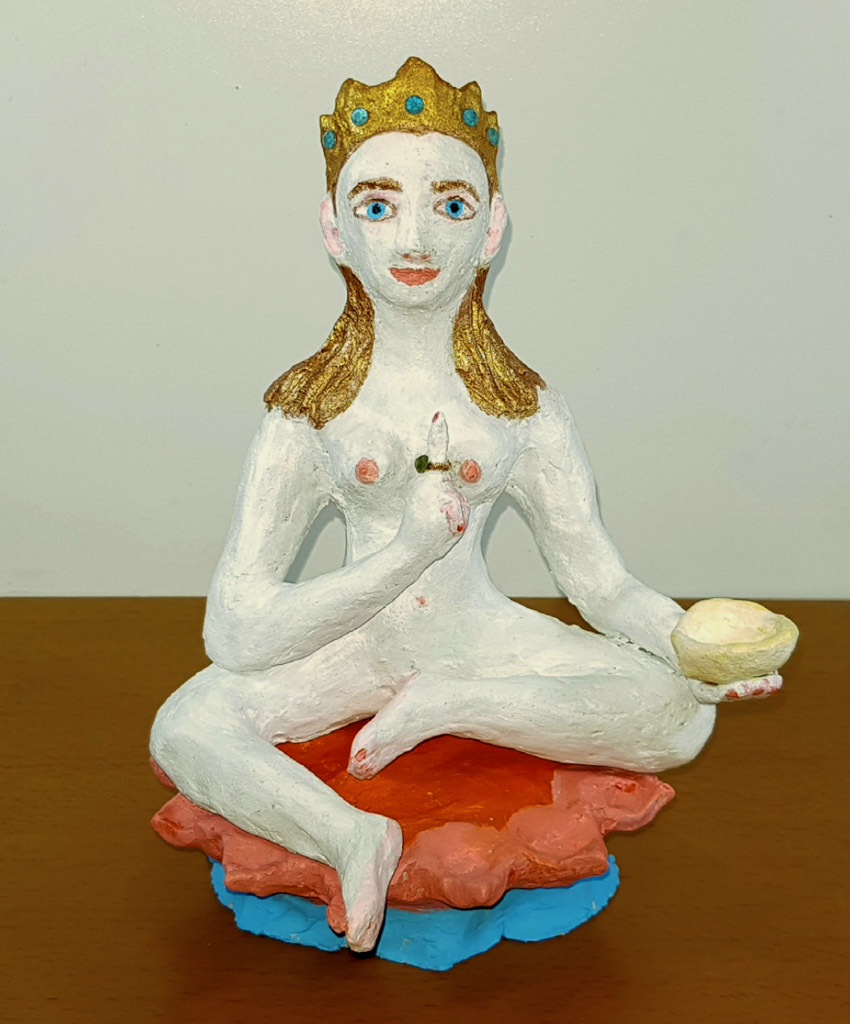Author: Vladimir Pyatsky
Translation: Natasha Tsimbler
One of my patients, a thin and emaciated old man, was almost immobile, his body fragile and stiff like a porcelain doll. Caring for him was difficult and required great attention to avoid causing him unnecessary pain or injuring his paper-thin skin while changing dressings on his bedsores, transferring him to a bathing chair, and so on.
One day, as I was nearly finished with the usual procedures, a young man – the patient’s grandson, who was lying on the couch in the living room reading a newspaper, casually said to me, “Hey, get me a glass of water!” Feeling a surge of anger, I replied that he could get up from the couch and pour the water himself. As I turned back to my patient to finish the procedures, I struck my eyebrow so hard against the doorframe that I started bleeding.
Reflecting on this incident, I realized that by seeing an enemy in the audacious young man, I had failed to notice the tiger of my own anger leaping at me. This tiger had been lurking in the thickets of my sense of righteousness and my desire for praise for the work I was doing.
When I analyzed that event sometime later, I came to an additional realization: the young man’s behavior was an expression of his frustration with the fact that a stranger was walking around his home because of his grandfather’s illness. His demonstrative disrespect was a way of asserting his dominance over his home territory. Meanwhile, with my own proud awareness of the importance of my work, I had just as thoughtlessly asserted my own, albeit temporary, authority over the same space. I had participated in a conflict without even realizing it.
Engaging in a battle that we fail to recognize as such is a dangerous thing. Thus, the tiger of my mind, by inflicting a minor scratch to me, saved me from the far greater danger of getting stuck in a sense of hostility and thoughts of “He insulted me, I’ll put him in his place!” The illusion of victory in defending my dignity could only have reinforced the mistaken belief that “I am this body and this name.” When visualizing oneself as a deity, it is crucial not to fall ill with the pride that Buddhist texts call “the disease of the son (or daughter) of the gods.”
The sense of divinity in one’s own mind arises when perceiving the single foundation present in the streams of consciousness of all beings. Conversely, the disease of pride develops when, failing to recognize that this divine essence is present in all beings, we begin to consider it the exclusive property of our own identity.
Author
Author: Vladimir Pyatsky
Translation: Natasha Tsimbler
One of my patients, a thin and emaciated old man, was almost immobile, his body fragile and stiff like a porcelain doll. Caring for him was difficult and required great attention to avoid causing him unnecessary pain or injuring his paper-thin skin while changing dressings on his bedsores, transferring him to a bathing chair, and so on.
One day, as I was nearly finished with the usual procedures, a young man – the patient’s grandson, who was lying on the couch in the living room reading a newspaper, casually said to me, “Hey, get me a glass of water!” Feeling a surge of anger, I replied that he could get up from the couch and pour the water himself. As I turned back to my patient to finish the procedures, I struck my eyebrow so hard against the doorframe that I started bleeding.
Reflecting on this incident, I realized that by seeing an enemy in the audacious young man, I had failed to notice the tiger of my own anger leaping at me. This tiger had been lurking in the thickets of my sense of righteousness and my desire for praise for the work I was doing.
When I analyzed that event sometime later, I came to an additional realization: the young man’s behavior was an expression of his frustration with the fact that a stranger was walking around his home because of his grandfather’s illness. His demonstrative disrespect was a way of asserting his dominance over his home territory. Meanwhile, with my own proud awareness of the importance of my work, I had just as thoughtlessly asserted my own, albeit temporary, authority over the same space. I had participated in a conflict without even realizing it.
Engaging in a battle that we fail to recognize as such is a dangerous thing. Thus, the tiger of my mind, by inflicting a minor scratch to me, saved me from the far greater danger of getting stuck in a sense of hostility and thoughts of “He insulted me, I’ll put him in his place!” The illusion of victory in defending my dignity could only have reinforced the mistaken belief that “I am this body and this name.” When visualizing oneself as a deity, it is crucial not to fall ill with the pride that Buddhist texts call “the disease of the son (or daughter) of the gods.”
The sense of divinity in one’s own mind arises when perceiving the single foundation present in the streams of consciousness of all beings. Conversely, the disease of pride develops when, failing to recognize that this divine essence is present in all beings, we begin to consider it the exclusive property of our own identity.

